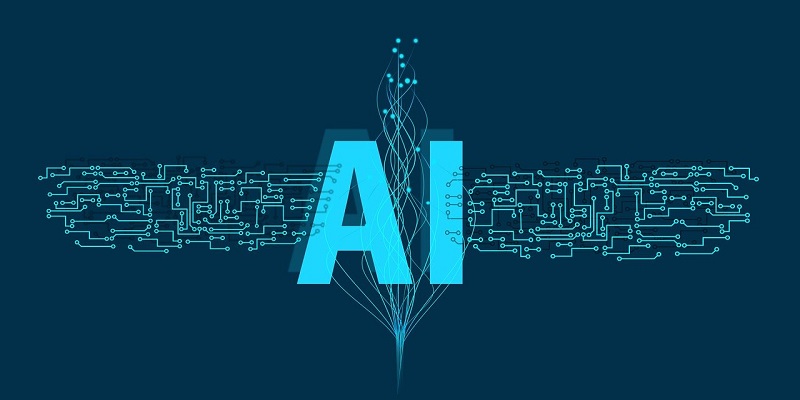In today’s fast-paced digital landscape, artificial intelligence (AI) has emerged as a transformative force, revolutionizing how applications are built, deployed, and maintained. With AI, developers can enhance user experiences, automate processes, and leverage data-driven insights to create cutting-edge applications that meet the evolving demands of users. This article delves into the various aspects of AI’s impact on app development, exploring popular AI platforms and cloud-based services that empower developers to harness the full potential of AI.
Enhancing user experiences and automating processes
AI has become synonymous with delivering exceptional user experiences. By leveraging AI algorithms, developers can build applications that adapt and personalize content according to users’ preferences, making interactions more intuitive and dynamic. Furthermore, AI-powered chatbots and virtual assistants facilitate seamless customer support, enhancing user engagement and satisfaction. Automating processes through AI enables developers to streamline workflows, reducing manual labor and allowing focus on critical tasks.
TensorFlow: A popular open-source AI platform
Developed by Google’s Brain Team, TensorFlow has emerged as one of the most popular choices among developers. This open-source AI platform offers a comprehensive ecosystem for building and deploying machine learning models at scale. TensorFlow’s versatility and support for various programming languages make it accessible for developers of all backgrounds. Through its powerful libraries and tools, developers can leverage TensorFlow’s deep learning capabilities to create intelligent applications with ease.
PyTorch: Unleashing the Potential of Neural Networks
Facebook’s AI Research Lab (FAIR) has developed PyTorch, another prominent open-source AI platform that is gaining significant traction. Known for its dynamic computational graph, PyTorch allows developers to experiment with neural networks and iterate quickly. With PyTorch’s intuitive development environment, developers can efficiently build sophisticated AI models, enabling a wide range of applications, from natural language processing to computer vision.
IBM Watson: a Cloud-Based AI Platform
IBM Watson, a cloud-based AI platform, offers a rich set of tools and services designed to accelerate AI app development. With Watson’s powerful machine learning and natural language processing capabilities, developers can leverage AI to extract actionable insights from vast amounts of data. Watson facilitates the integration of AI functionalities into applications through APIs and SDKs, empowering developers to innovate across various industries, including healthcare, finance, and retail.
Microsoft Azure Cognitive Services: AI at Your Fingertips
Microsoft Azure Cognitive Services is a collection of AI services and APIs provided by Microsoft’s cloud computing platform, Azure. Developers can leverage Azure Cognitive Services to incorporate AI functionality like speech recognition, image analysis, and language understanding into their applications easily. With pre-built AI models and a user-friendly interface, developers can accelerate app development with minimal coding.
AWS: Unleashing the Power of AI and Machine Learning
Amazon Web Services (AWS) offers a comprehensive suite of AI and machine learning services, empowering developers to build sophisticated AI-driven applications seamlessly. Services like Amazon Rekognition for image and video analysis and Amazon Polly for text-to-speech synthesis enable developers to create rich and interactive experiences. AWS’s SageMaker platform provides a collaborative environment for building, training, and deploying machine learning models, simplifying the end-to-end process.
Google Cloud AI: Empowering Intelligent Applications
Google Cloud AI provides a suite of AI and machine learning tools that support developers in building intelligent applications. With services like Google Cloud AutoML, developers can easily create custom machine learning models, even with minimal expertise. Google Cloud AI’s robust infrastructure, including TensorFlow and Cloud Machine Learning Engine, enables developers to scale AI applications effortlessly and meet the increasing demands of users.
H2O.ai: Open-Source AI for Scalable Machine Learning
H2O.ai offers an open-source AI platform designed for organizations looking to deploy machine learning and deep learning models at scale. Providing powerful algorithms, H2O.ai allows developers to build AI models faster and with greater accuracy. Its distributed architecture enables seamless scalability, making it an ideal platform for handling large volumes of data.
Artificial intelligence has become indispensable in the realm of app development, transforming the way applications are created, deployed, and experienced. With AI platforms like TensorFlow, PyTorch, IBM Watson, Microsoft Azure Cognitive Services, AWS, Google Cloud AI, and H2O.ai, developers have the tools and services needed to build intelligent applications that enhance user experiences, automate processes, and leverage data-driven insights. As AI continues to evolve, app developers can harness its power to drive innovation and create groundbreaking solutions that shape the future.

